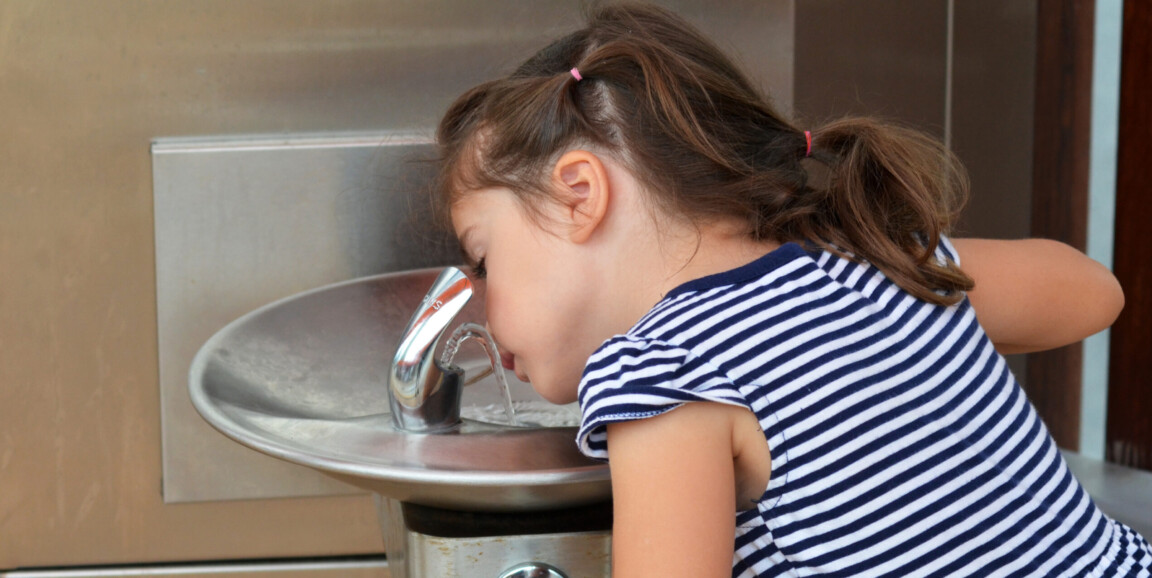Fun fact, Californians: If your child's school is equipped with chilled-water fountains and bottle filling stations instead of the feeble porcelain fountains of yore, you have Stanford Medicine pediatrician Anisha Patel, MD, and her colleagues to thank.
A story I wrote recently for Stanford Medicine magazine explains how Patel's research on the health benefits of drinking water instead of sugary beverages, combined with her partnerships with communities and health-policy advocates, has contributed to better water access at California schools.
"With colleagues both at and beyond Stanford, we've helped people start thinking about water access as an issue for children's health," Patel said, adding that her early findings and partnerships with policymakers prompted changes to state and federal laws, which now require kids to have places at school near where they eat meals to get free, safe, chilled, tasty water.
The story focuses mostly on Patel's work in elementary and middle schools, but she's also investigating how to entice preschoolers into drinking more water. For younger kids, parents play a bigger role in influencing what beverages their children consume, so Patel and Anna Grummon, PhD, instructor of pediatrics at Stanford Medicine, recently led a study to see if they could influence parents' views on water and sugary beverages via messages incorporated into children's story books. Parents spend a lot of time -- around 30 minutes a day -- reading to small kids. The scientists wondered if children's books could stealthily nudge parents to offer healthier beverages to their children.
The books that formed the basis for the study are from a series called Potter the Otter and were written for Santa Clara County's First 5 program, part of a California-wide parenting initiative that promotes well-being for children up to age 5. In the books, a cartoon otter uses kid-friendly rhymes to talk about healthy behaviors such as getting vaccines, preparing for kindergarten or eating veggies.
One book, Potter the Otter: A Tale About Water, encourages children to drink more water and less juice and soda: "Drink water for thirst, and you should know, water is healthy. It helps you grow!"
To study how the books' messages influence parents, the scientists ran an experiment via an online survey. In the survey, completed by more than 2,100 parents of children ages 6 months to 5 years, parents saw storybook pages featuring messages about preparing for kindergarten, or one of three types of beverage-related messages -- promoting water consumption, discouraging sugary drinks, or a combination of encouraging water and discouraging sugary drinks. After viewing the pages, they were asked about their plans for what beverages they would serve their children.
Compared with parents who saw the messages unrelated to beverages (which acted as a control), those who saw the beverage messages were more likely to say they planned to limit their children's sugary beverages and offer more water. The combined messages -- promoting water and discouraging sugary beverages -- were most effective, the study found.
"It sounds simple, but it's rare for us to test those strategies against each other in a horse race, in a really clean way," Grummon said. Not only did she hope to learn what would resonate with parents, she thinks the findings can guide how pediatricians talk to moms and dads about children's beverage consumption.
"Storybooks are an opportunity to reach parents as well as kids with health messages," Grummon said. Most small kids like to have the same book read over and over and over, she added with a chuckle, saying "It would be really interesting to track this after repeat exposures, too."
Photo by Rafael Ben-Ari






